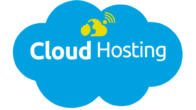
Cloud hosting is a website or application hosting service that utilizes a network of interconnected virtual servers located in various data centers. Instead of relying on a single physical server, cloud hosting distributes the resources and data across multiple servers, providing scalability, flexibility, and reliability
Table of Contents
- Introduction to Cloud Hosting for small businesses.
- >
What is Cloud Hosting? - >Why Cloud Hosting is Relevant for Small Businesses.
- >Objectives of the Guide.
- Benefits of cloud hosting for small businesses.
- >Cost effectiveness and scalability.
- >Enhanced Reliability and Availability + 8 more.
- 7 Myths about cloud hosting debunked.
- Cons of cloud hosting for small businesses.
- >Dependence on Internet Connectivity.
- >Data Security Concerns.
- >Limited Control and Customization.
- Future trends in cloud hosting for small businesses.
- Conclusion
In cloud hosting, websites are hosted in a virtual environment that draws resources from a network of servers. This approach ensures that resources like processing power, storage, and memory can be dynamically allocated based on the website’s needs. It allows websites to handle traffic spikes efficiently and prevents downtime or performance issues during peak periods.
By leveraging the cloud infrastructure, websites hosted on cloud hosting platforms benefit from high availability and fault tolerance. If one server fails, another server in the network can seamlessly take over the workload, ensuring continuous operation and minimizing disruptions.
Moreover, cloud hosting offers scalability, allowing websites to easily adjust resource allocation based on demand. This flexibility enables businesses to handle sudden traffic surges, accommodate growth, and effectively manage fluctuating resource requirements without significant downtime or manual intervention.
Overall, cloud hosting provides an SEO-friendly hosting solution by offering reliable performance, scalability, and high availability for websites, resulting in improved user experience and search engine rankings.
Benefits of Cloud Hosting for small businesses
Cost-effectiveness, Scalability, Enhanced Reliability, Enhanced security, and Data Protection, Accessibility, and remote work, Disaster recovery, Automatic software updates, Flexibility and customization, Enhanced collaboration, and Environmental sustainability.
1)Cost-effectiveness: Cloud hosting eliminates the need for upfront infrastructure investments. Small businesses can avoid purchasing and maintaining expensive hardware, as cloud hosting providers offer flexible pricing models, such as pay-as-you-go or monthly subscriptions, which can be more cost-effective.
2)Scalability: Cloud hosting allows small businesses to scale their resources up or down based on their needs. They can easily add or remove server capacity, storage space, or computing power, enabling them to adapt to fluctuations in demand without overpaying for unused resources.
3) Enhanced Reliability and improved performance: Cloud hosting providers typically offer robust infrastructure and redundant systems to ensure high availability and minimize downtime. Small businesses can benefit from reliable services, as most cloud hosting providers have multiple data centers and backup systems in place.
4) Enhanced security and Data protection: Cloud hosting providers prioritize data security and implement robust measures to protect sensitive information. They often have advanced encryption, access controls, and regular data backups, ensuring that small businesses data is secure and easily recoverable in case of an incident.
5)Accessibility and remote work: Cloud hosting enables small businesses to access their applications, files, and data from anywhere with an internet connection. This flexibility allows for remote work, collaboration among team members, and the ability to serve customers effectively even when not physically present in the office.
6)Disaster recovery: Cloud hosting providers typically have disaster recovery mechanisms in place to safeguard data and ensure business continuity. Small businesses can leverage these capabilities to quickly recover their operations in the event of a disaster, such as hardware failure, power outage, or natural calamities.
7)Automatic software updates: Cloud hosting providers handle software updates and maintenance tasks, relieving small businesses of the burden of managing and applying updates themselves. This ensures that the hosted applications and underlying infrastructure are up-to-date, secure, and optimized for performance.
8)Flexibility and customization: Cloud hosting allows small businesses to choose from a range of hosting plans and configurations that suit their specific needs. They can easily upgrade or downgrade resources as their requirements change, ensuring they have the flexibility to adapt and grow.
9)Enhanced collaboration: Cloud hosting often integrates with collaboration tools and services, making it easier for small business teams to collaborate on projects, share files, and communicate effectively. This streamlines workflows and improves productivity within the organization.
10)Environmental sustainability: Cloud hosting providers can leverage their infrastructure efficiency to achieve better energy consumption and reduce the carbon footprint compared to traditional on-premises hosting. Small businesses can contribute to environmental sustainability by hosting their services in the cloud.
These benefits highlight how cloud hosting can provide small businesses with cost-effective, scalable, secure, and reliable infrastructure, enabling them to focus on their core operations and drive growth.
What are the objectives of this Guide on cloud hosting for small businesses?
1)To educate small business owners and entrepreneurs about the concept of cloud hosting and its relevance to their businesses.
2)To highlight the cost efficiency and scalability advantages of cloud hosting, helping small businesses understand how it can save them money and provide flexibility in resource allocation.
3)To emphasize the enhanced reliability and availability that cloud hosting offers, ensuring small businesses can maintain continuous operations, minimize downtime, and have robust disaster recovery and data backup mechanisms.
4)To explain how cloud hosting improves performance and speed, allowing small businesses to leverage higher processing power, efficient load balancing, and content delivery networks for better user experiences.
5)To explore the enhanced security and data protection features of cloud hosting, outlining the encryption, authentication, and compliance measures that safeguard small businesses’ sensitive information.
6)To illustrate the collaboration and remote work capabilities enabled by cloud hosting, showcasing how small business teams can collaborate seamlessly and access data from any location or device.
7)To demonstrate how cloud hosting simplifies IT management for small businesses, reducing infrastructure complexity, automating software updates and maintenance, and providing centralized monitoring and troubleshooting tools.
8)To emphasize the competitive advantage and innovation opportunities that cloud hosting brings to small businesses, enabling access to advanced technologies, rapid deployment of applications, and freeing up resources for core business activities.
9)To present real-life case studies of small businesses that have successfully adopted cloud hosting, showcasing their transformations, growth, improved security, and collaboration experiences.
10)To provide best practices for small businesses to adopt cloud hosting, including assessing business needs, selecting the right provider, planning migration strategies, and ensuring data privacy and compliance.
11)To address potential challenges associated with cloud hosting for small businesses and offer mitigation strategies, including vendor lock-in, connectivity issues, security concerns, and employee training.
12)To explore future trends in cloud hosting relevant to small businesses, such as edge computing, AI and ML integration, serverless computing, and hybrid cloud solutions.
13)To conclude by summarising the benefits of cloud hosting for small businesses, providing key considerations, and guiding small businesses on their next steps in embracing cloud hosting technology.
7 Myths about cloud hosting debunked
When it comes to cloud hosting, there are several myths that can mislead people. It’s important to understand these misconceptions to make informed decisions about your website’s SEO strategy. Here are seven common myths of cloud hosting, debunked:
Myth: Cloud hosting is expensive.
Reality: While cloud hosting may have higher upfront costs, it offers cost-saving benefits in the long run. Pay-as-you-go pricing models allow you to pay only for the resources you use, making it cost-effective for businesses of all sizes.
Myth: Cloud hosting is less secure than traditional hosting.
Reality: Cloud hosting providers prioritize security measures and invest heavily in protecting their infrastructure. They employ advanced security protocols, encryption, and regular backups to ensure the safety of your data.
Myth: Cloud hosting is complicated to manage.
Reality: Cloud hosting providers offer user-friendly interfaces and management tools that simplify the process of managing your hosting environment. They handle server maintenance, updates, and backups, allowing you to focus on your website.
Myth: Cloud hosting is only suitable for large enterprises.
Reality: Cloud hosting is scalable and flexible, making it suitable for businesses of all sizes. Whether you have a small blog or a growing e-commerce website, cloud hosting can accommodate your needs and scale your business.
Myth: Cloud hosting always provides better performance.
Reality: While cloud hosting offers scalability and improved performance in most cases, it ultimately depends on various factors, such as your website’s design, optimization, and the cloud provider’s infrastructure. Proper configuration and optimization are key for optimal performance.
Myth: Migrating to the cloud will negatively impact SEO rankings.
Reality: If done correctly, migrating to cloud hosting should not impact your SEO rankings negatively. Proper planning and execution, including proper redirects and monitoring, can ensure a smooth transition without any negative effects on your search engine rankings.
Myth: Cloud hosting is always reliable, with no downtime.
Reality: While cloud hosting providers strive for high availability, no system is entirely immune to downtime. However, reputable cloud hosting providers have redundant systems and backup measures in place to minimize downtime and ensure reliability.
By understanding these myths and their realities, you can make informed decisions about cloud hosting that align with your SEO strategy and business needs.
Cons/Potential Challenges of using cloud hosting for small businesses
1)Dependence on Internet Connectivity:
One of the primary disadvantages of cloud hosting for small businesses is the heavy reliance on internet connectivity. Since cloud hosting involves storing and accessing data over the internet, a stable and robust internet connection is crucial. In areas with poor or unreliable internet infrastructure, frequent disruptions or slow connections can hinder business operations and productivity.
2)Data Security Concerns: While cloud hosting providers invest heavily in security measures, some small businesses may have concerns about data security and privacy. By storing sensitive business data on remote servers, there is a perceived risk of unauthorized access or data breaches. Although cloud hosting providers implement various security protocols, businesses must ensure they choose a reputable provider that offers robust encryption, regular backups, and strict access controls.
3)Limited Control and Customization:
Cloud hosting involves sharing server resources with other businesses, which means limited control and customization options. Small businesses may find it challenging to tailor their hosting environment precisely to their unique requirements. Additionally, some providers may impose restrictions on software installations or limit access to specific server configurations, which can hinder the flexibility and customization potential of the hosting environment.
4)Potential for Downtime: Despite the promises of high availability and uptime, cloud hosting services are not immune to technical glitches or downtime. If a cloud hosting provider experiences a system failure or undergoes maintenance, it can result in the temporary unavailability of hosted applications and data. For small businesses that heavily rely on continuous access to their online platforms, any significant downtime can lead to customer dissatisfaction, lost revenue, and damage to their brand reputation.
5)Cost Considerations: While cloud hosting is often touted as a cost-effective solution, small businesses should carefully evaluate their budget and long-term financial goals. Although the initial costs may seem affordable, ongoing expenses can accumulate as businesses scale up their operations or exceed allocated resources. Additionally, some providers charge for additional services or impose penalties for exceeding usage limits, which can strain a small business’s financial resources.
6)Data Transfer and Latency: Uploading and transferring large amounts of data to the cloud can be time-consuming, particularly if the internet connection speed is limited. Additionally, latency issues can arise when accessing data from distant cloud servers.
7)Vendor Lock-in: Switching cloud providers or migrating to an alternative hosting solution can be challenging, as it may involve data migration, reconfiguration, and potential downtime.
8)Performance Variability: In a shared cloud hosting environment, performance may be inconsistent, particularly during peak usage periods when other users’ activities impact performance.
9)Service Outages: Even reputable cloud providers may experience occasional service outages, which can impact business operations and productivity.
10)Hidden Costs: Cloud hosting often involves additional costs beyond the basic subscription fees, such as data transfer fees, storage overages, and costs for additional services or support.
Cloud hosting offers undeniable advantages for small businesses, but it is crucial to recognize and understand its drawbacks before making a decision. Factors such as internet connectivity, data security, limited control, potential downtime, and cost considerations should all be thoroughly assessed. By weighing the pros and cons, small businesses can make an informed choice that aligns with their unique needs, budget, and growth aspirations. Consulting with an IT professional or cloud hosting specialist can also provide valuable insights and guidance in making the right decision for your business.
Future Trends in Cloud Hosting for Small Businesses
1)Edge Computing and Internet of Things (IoT):
In the future, edge computing and IoT will play a significant role in cloud hosting for small businesses. Edge computing involves processing data at or near the edge of the network, closer to the source of data generation, rather than sending it to a centralized cloud server. This approach reduces latency and improves real-time decision-making capabilities.
With the proliferation of IoT devices, small businesses will rely on edge computing to handle the massive amounts of data generated by these devices. By leveraging edge computing, businesses can process IoT data locally, reducing the need for constant data transfers to the cloud. This approach enhances efficiency, reduces costs, and enables faster response times for critical applications and services.
2)Artificial Intelligence (AI) and Machine Learning (ML):
AI and ML will continue to be major trends in cloud hosting for small businesses. These technologies can analyze vast amounts of data, uncover patterns, and provide valuable insights for businesses. Cloud hosting platforms will integrate AI and ML capabilities, making it easier for small businesses to access and leverage these technologies.
Small businesses can utilize cloud-hosted AI and ML services for various applications, such as predictive analytics, customer behavior analysis, personalized marketing campaigns, and automated decision-making. Cloud platforms will offer pre-trained models and tools that allow small businesses to build their AI solutions without significant upfront investments in infrastructure or expertise.
3)Serverless Computing and Function-as-a-Service (FaaS):
Serverless computing and Function-as-a-Service (FaaS) models will gain popularity among small businesses. In serverless computing, businesses do not need to provision or manage servers; instead, they focus on writing and deploying functions that run in the cloud. FaaS platforms automatically scale the infrastructure based on demand, charging businesses only for the actual execution time of their functions.
For small businesses, serverless computing offers several advantages. It eliminates the need to manage server infrastructure, reduces costs by scaling resources dynamically, and enables rapid development and deployment of applications. Small businesses can focus on writing code and building applications without worrying about infrastructure maintenance.
Future trends in cloud hosting for small businesses will include edge computing and IoT for faster and localized data processing, AI and ML for data analysis and insights, and serverless computing/FaaS for streamlined development and cost-effective infrastructure management. Embracing these trends can provide small businesses with competitive advantages, improved efficiency, and scalability in the cloud.

Build Your Dream Website Today
Everything you need to build and launch your successful website. Domain Registration and SSD Shared Hosting Solutions for your Optimal performance and reliable website.
In conclusion
In conclusion, cloud hosting offers a myriad of benefits that can significantly enhance the growth and success of small businesses. By embracing the cloud, businesses can enjoy increased flexibility, scalability, cost-effectiveness, and improved security.
The ability to access data and applications from anywhere, at any time, empowers small businesses to operate with agility and collaborate seamlessly. Moreover, the scalability of cloud hosting allows businesses to easily adjust resources according to their needs, ensuring optimal performance without the burden of maintaining expensive infrastructure.
With reduced upfront costs and pay-as-you-go models, cloud hosting enables small businesses to allocate their financial resources more efficiently, investing in areas that drive innovation and expansion. Additionally, robust security measures implemented by reputable cloud providers offer small businesses enhanced data protection and disaster recovery capabilities, bolstering their trustworthiness and safeguarding sensitive information.
In today’s fast-paced and competitive landscape, embracing cloud hosting has become a crucial strategic move for small businesses, offering them a competitive edge, empowering growth, and unlocking new possibilities for success. By harnessing the power of the cloud, small businesses can transcend limitations and embrace a future of limitless opportunities.











Leave a Reply